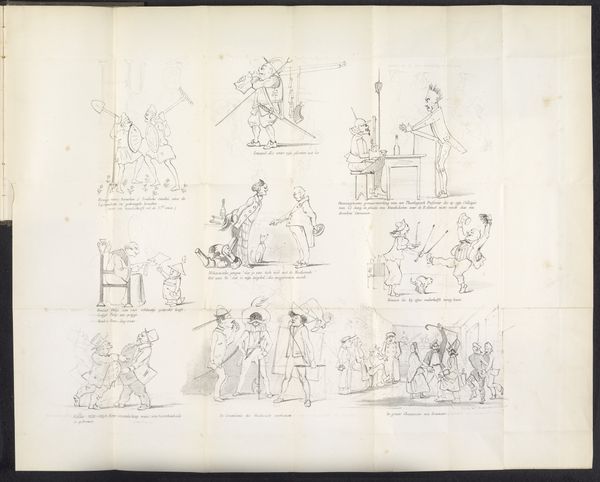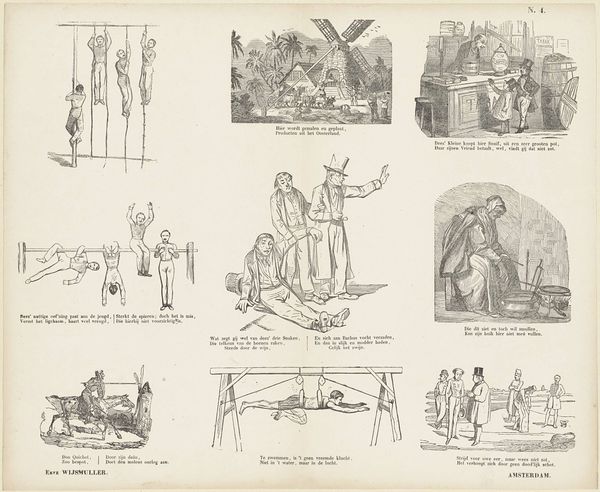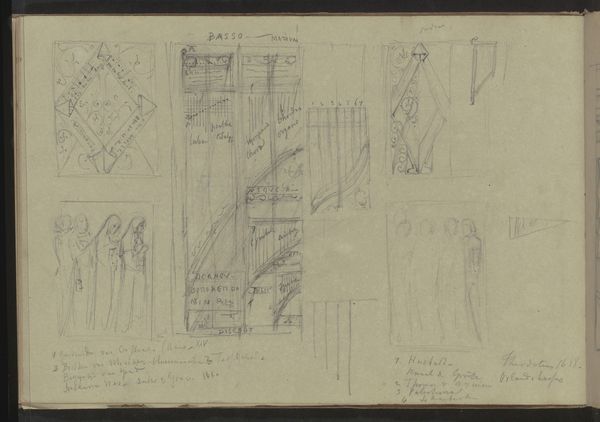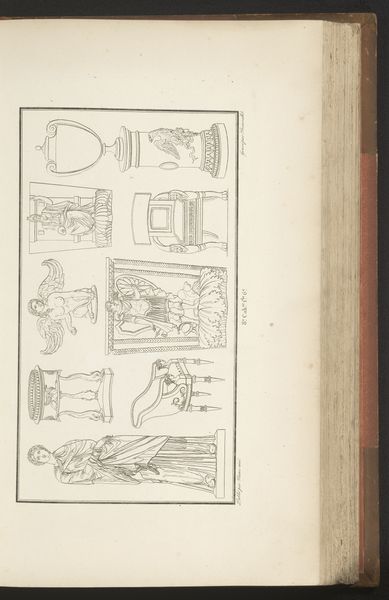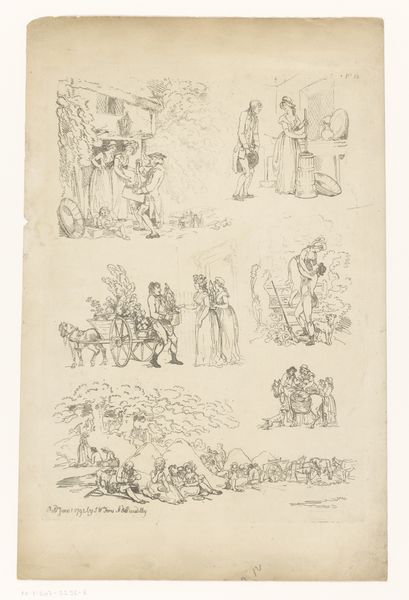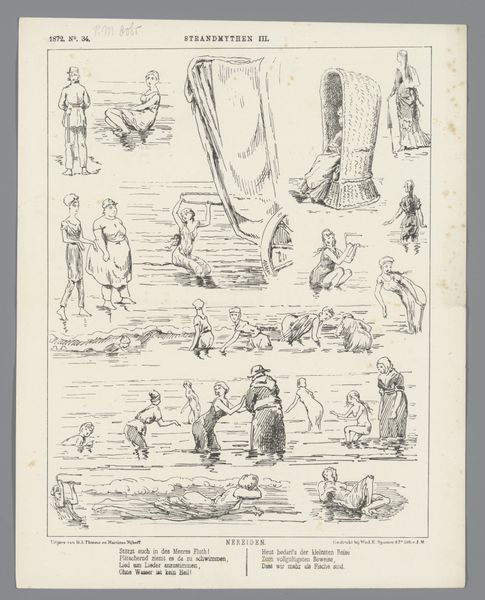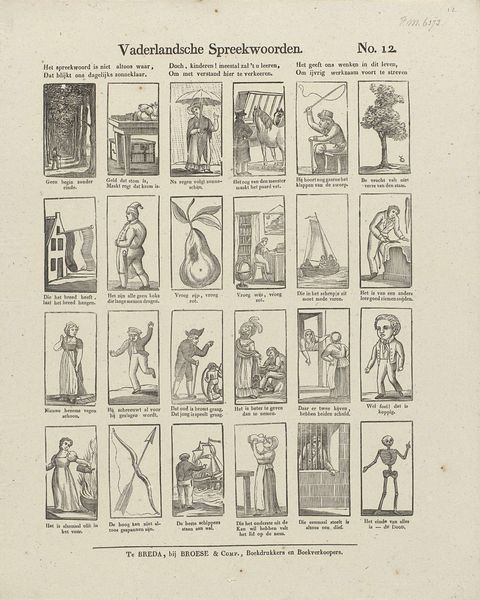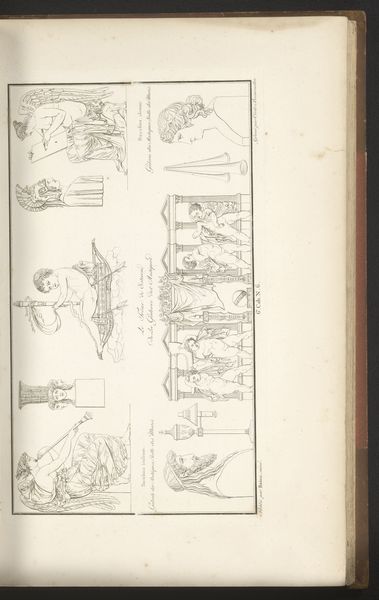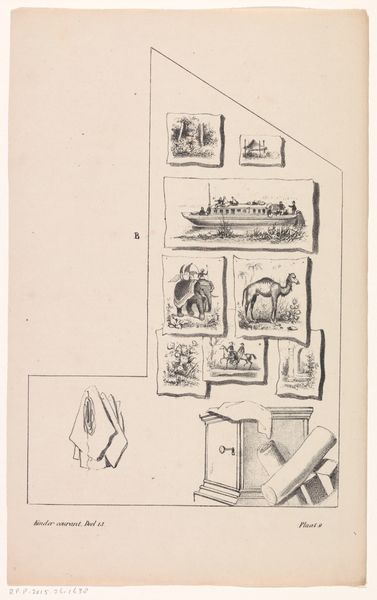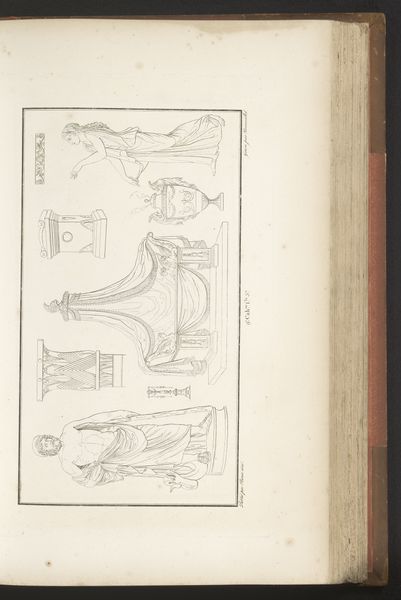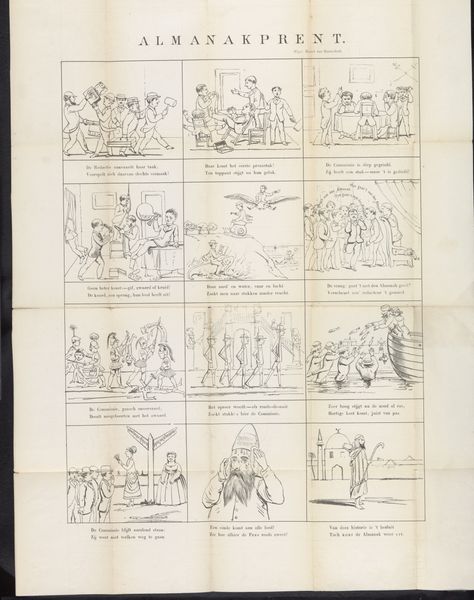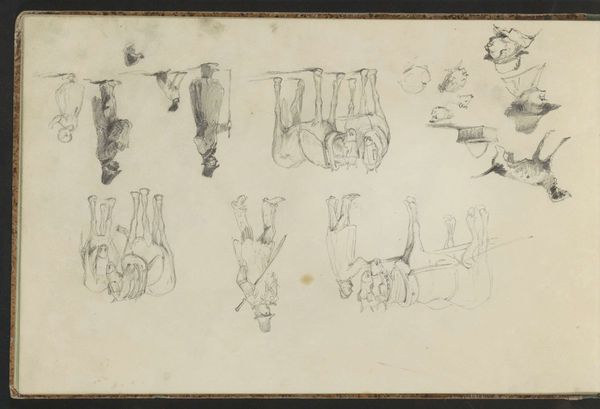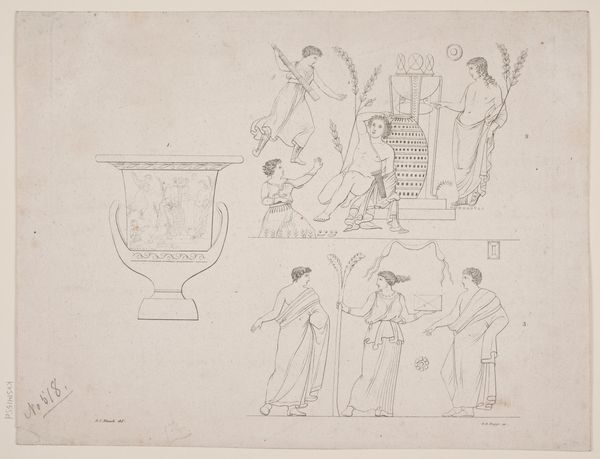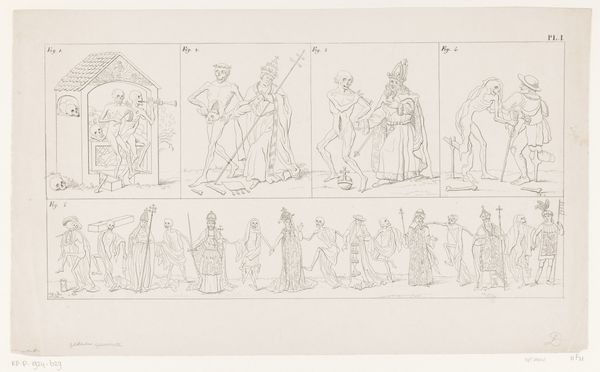
Spotprent op de hervorming van de rechterlijke organisatie, 1873 1873
0:00
0:00
drawing, print, ink
#
drawing
#
comic strip sketch
#
quirky sketch
#
narrative-art
#
dutch-golden-age
# print
#
caricature
#
sketch book
#
hand drawn type
#
personal sketchbook
#
ink
#
idea generation sketch
#
sketchwork
#
geometric
#
sketch
#
comic
#
sketchbook drawing
#
history-painting
#
storyboard and sketchbook work
#
sketchbook art
Dimensions: height 390 mm, width 250 mm
Copyright: Rijks Museum: Open Domain
Editor: This is "Spotprent op de hervorming van de rechterlijke organisatie, 1873" by Johan Michael Schmidt Crans. It appears to be an ink drawing and print with lots of small narrative scenes, almost like a page of comic strips. The mood seems critical, with many figures appearing burdened or absurd. What's your take on it? Curator: Given the title and the date, 1873, this print presents a fascinating insight into public discourse surrounding judicial reform in the Netherlands. Caricature was a potent tool in shaping public opinion at the time, and the choice of a print medium made it widely accessible. We should ask, how did artists depict institutions to influence popular views? Editor: So, the chaotic composition and almost grotesque figures aren't just for artistic effect, but designed to sway the viewer? Curator: Precisely! Consider how each little scene critiques different aspects of the legal system – perhaps the length of procedures, the corruption, or even just the changing of traditions. The humor, however dark, makes complex issues easier to digest and discuss within society. Does any scene, in particular, strike you as a particularly charged image politically? Editor: Number 15, with the sphinx seemingly reconstructed, is very pointed. It definitely speaks to some societal anxieties of the time. Curator: Yes, the visual metaphor of rebuilding the mythical Sphinx is extremely evocative and could suggest a desire to restore justice in its true essence. The placement of it towards the end of the strip even highlights its importance within the entire reform process. What would you say you’ve learned today? Editor: I learned to consider comic art as serious cultural commentary and propaganda in its time. Thanks!
Comments
No comments
Be the first to comment and join the conversation on the ultimate creative platform.
